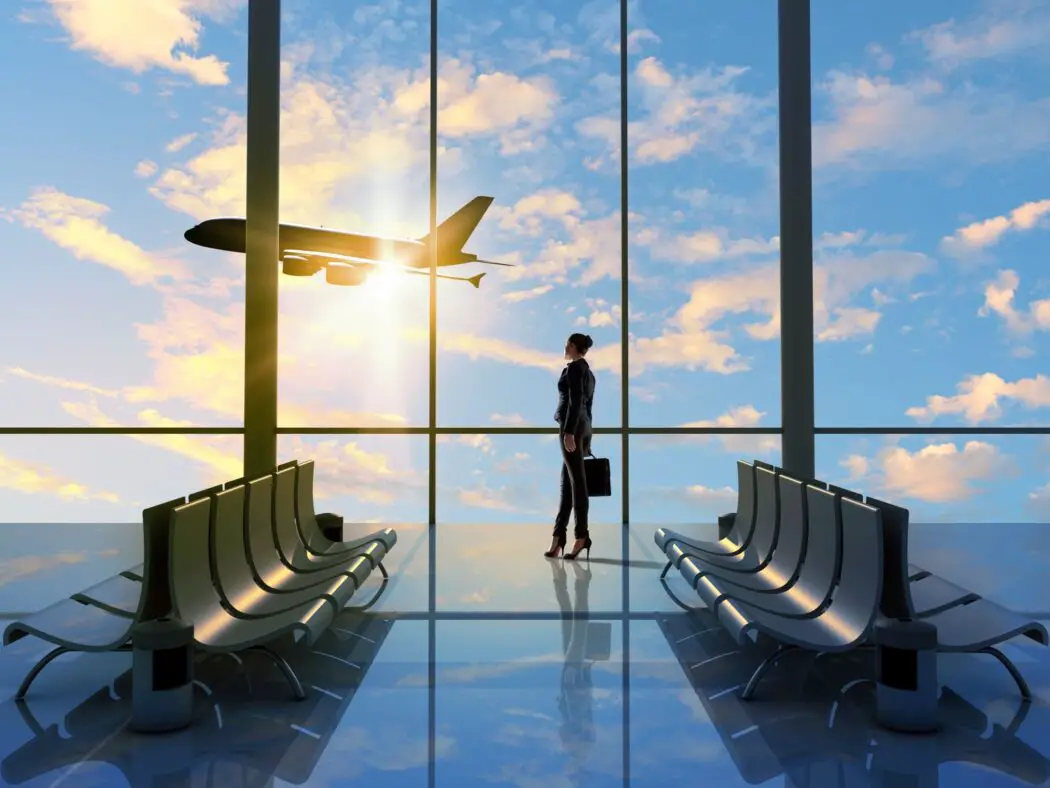Business travel can be both exciting and challenging, but having the right tips can make all the difference. For those new to business trips, knowing what to pack and how to navigate airports is required. For example, having a selection of 55x40x20cm size luggages will help you travel light and still have everything you need. These cabin bags meet airline size recommendations, making them perfect for those on the go. While backpacks are a convenient option for casual trips, they don’t offer the professional appearance or organization that’s ideal for business travel.
Being prepared can significantly impact your travel experience. Simple actions, like packing light and using portable chargers, can save you time and hassle. Efficient packing helps in organising and ensures that all essentials are within easy reach during your journey.
Another key aspect is understanding the culture and etiquette of the country you’re visiting. This can help you build better relationships and avoid misunderstandings. Staying aware of local norms and showing appreciation for local customs can improve your overall travel experience, making sure your business trip is a success.
1. Packing Smart and Light
Packing effectively can make your travel experience smoother. Start by choosing durable carry-on luggage to avoid checked bag fees and long waits at baggage claim. You can make the most of your space by using packing cubes, or reduce wrinkles by rolling your garments rather than folding them, which will also give you more room in your case. Stick to a colour palette to easily mix and match outfits. Remember essentials like toiletries, which should comply with TSA regulations, and a travel-size first aid kit for minor emergencies.
Keep electronics and chargers in easy-to-reach compartments. This helps during security checks and allows quick access when you need them. Be sure to pack a backup battery for your devices so you stay connected and productive, even during delays or unexpected situations.

2. Understanding Travel Policies
Familiarise yourself with your company’s travel policies before your trip. These guidelines typically cover expense reporting, preferred vendors, and booking procedures. Knowing these can help you make informed decisions during your travels and avoid out-of-pocket expenses.
Look for approved airlines and accommodations, as companies often have negotiated rates that can save money. Understand what expenses are reimbursable to eliminate surprises on your return. Keep detailed records of your transactions, including receipts, in an organised manner. This will make the reimbursement process smoother and faster.
Knowledge of booking procedures can also streamline your experiences. Some companies have online systems for booking travel directly. Using these systems can ensure your travel aligns with corporate standards and saves you time.
3. Leveraging Technology for Efficiency
Technology can significantly improve your business travel efficiency. Start by downloading travel apps that offer real-time flight updates, navigation assistance, and itinerary management. These tools help you stay on top of changes and manage your trip seamlessly.
Use online check-in for flights to reduce wait times at the airport. Consider digital boarding passes and mobile payment apps to simplify transactions. Sharing your itinerary through travel apps can keep colleagues updated without constant communication.
Cloud storage services can be valuable for storing important documents, ensuring you can access them from anywhere. Additionally, virtual private networks (VPNs) provide security when using public Wi-Fi. By integrating technology into your travel plans, you can stay productive and connected without complications.
4. Navigating Airports and Transit
Navigating airports smoothly is essential for maintaining a stress-free journey. You should check in online before arriving at the airport to save time. Carry your boarding pass on your phone to avoid handling paper.
Using TSA PreCheck or other fast-track options can reduce waiting times during security checks. These services let you keep shoes and belts on, saving you effort. It’s also helpful to familiarize yourself with the airport layout before your trip, especially large ones.
If you’re using public transport, using a dedicated transit app can help you navigate the unfamiliar routes. Knowing where to catch shuttles and taxis at the airport is also important for quick transitions between locations. Being prepared keeps your travel experience smooth and calm.

5. Maintaining Health While Traveling
Keeping healthy while travelling is important. Deal with time zone changes by adjusting your schedule a few days ahead of your trip. This can reduce jet lag effects. Stay hydrated by drinking water throughout your journey. The air circulated around aeroplane cabins can be very dry, which means dehydration is a risk on flights. Snacks like nuts or fruit are smart choices to maintain energy and avoid unhealthy airport food.
When you arrive at your destination, take short walks to stay active. Fresh air and light exercise can help adjust your body’s rhythm. Don’t forget hand sanitizer and sanitising wipes to keep germs at bay while on the go.
6. Staying Connected and Productive
Staying connected is a priority when travelling for business. A reliable laptop or tablet lets you handle work tasks efficiently. Make sure your devices are charged and carry a power bank for backup.
Use cloud-based services for file access anywhere so you have everything easily to hand. Scheduling tools can also help manage your time effectively, keeping meetings and tasks on track.
Keep earphones handy. Noise-cancelling options can create a quiet work environment, even in busy spaces like airports and trains. Staying productive while travelling means preparing your tools and planning ahead to maintain focus.
7. Download travel and work apps in advance
Downloading apps before you travel makes your journey smoother. Use travel apps to keep track of flights, check weather updates, and find local attractions. These apps can provide real-time info that’s important when plans change quickly.
For work, downloading productivity apps helps you manage tasks. Calendar apps can send reminders for meetings in different time zones, ensuring you don’t miss important calls or deadlines.
Having maps and language translation apps is helpful too, especially in foreign cities. With these installed, you can navigate new places with ease and communicate more effectively. Pre-installing essential apps ensures you’re ready for anything that comes up on your trip.
8. Stay connected with portable Wi-Fi or SIM cards
To stay online wherever you are, consider portable Wi-Fi devices or local SIM cards. These options offer reliable internet access without relying on public Wi-Fi, which can be slow or unsecured.
Portable Wi-Fi is convenient as it allows multiple devices to connect. This is useful if traveling with colleagues. Local SIM cards can be a cheaper alternative if data usage is high, as they offer local rates.
Research the coverage and pricing of these options before you travel. Ensuring strong internet access lets you continue working wherever you are, without worrying about losing connection or encountering high roaming charges.

9. Use a travel rewards program
Enrolling in a travel rewards program can improve your business trips. These programs offer points for flights, hotel stays, and car rentals, which can add up over time for discounts or upgrades. Consider programs that align with your usual airlines or hotels to maximize benefits. Things like free checked bags, lounge access, or priority boarding can make a big difference during frequent travels.
Some programs also offer special discounts on travel-related expenses. Checking your eligibility before booking ensures that you use the best deals available, saving money and improving your travel experience.
10. Have local currency ready
Having local currency ready when you arrive is a smart move. It allows for smoother transactions, especially at places that don’t accept credit cards. Airports often have exchange counters, but rates can be high. Consider exchanging some money in advance or withdrawing from local ATMs upon arrival. Check if your bank offers fee-free international withdrawals, as this can save costs.
Carrying small denominations is helpful for tipping or paying for small purchases like public transit tickets. Being economically prepared ensures you can handle expenses easily without relying solely on cards.
Final thoughts
Travelling for business is equally thrilling and challenging. Whether you’re packing smartly, staying connected, or managing your time efficiently, each aspect plays a key role in the success of your trip.
Remember to plan ahead and stay organised. This will help you handle unexpected events more easily and keep your focus on your work goals. Following essential travel tips can make your trips smoother and more productive.
Your ability to adapt and utilize available resources can greatly improve your travel experience. With the right strategies, you can ensure that your business travels are not only efficient but also enjoyable.





